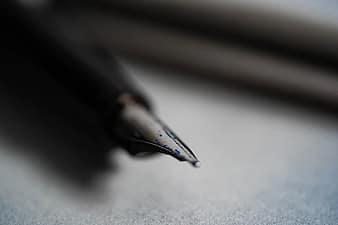Teaching Delivery and Timetables
Knowing how much time you will be on campus this year will help you to make important decisions and plan your college experience effectively. We have important information for you about your timetable and how teaching will be delivered to help you.
Launch of new research cluster on 'Life Writing'

Researchers at all career stages from across the University with an interest in Life Writing in the broadest possible sense are invited to the launch of this new cluster, which aims to explore the breadth and variety of research on life writing in all its forms.
The cluster will be launched by Professor Rebecca Braun (Lancaster University), followed by a work-in-progress paper on Life Writing and the Shoah by Helen Finch (University of Leeds). The ensuing roundtable will allow interested parties to discuss directions the cluster may wish to take in the future and open the cluster to the broadest possible involvement. Please contact Rachel MagShamhráin, r.magshamhrain@ucc.ie for further information. The link to the Teams meeting is here.
Paper abstracts
The Past, Present and Future of Life Writing
Rebecca Braun, Lancaster University
This talk explores the different ways in which societies construct attitudes towards authors and authors construct attitudes towards society, both in literary texts and in the many interpersonal relationships well beyond them. Drawing on the case-study of post-war Germany (particularly in the 1960s and 1970s), I outline four dominant modes of authorship that underpin these constructions on both sides: the celebratory, the commemorative, the satirical and the utopian. In the second part of my paper I then consider how the very foundation of the modern European novel is driven by articulating ways of orienting ourselves in the world that make us better actors, both individually and collectively, in the present and with a clear view to the future – authors of our own stories, as it were. This idea is explored through discussion of the genesis of Miguel de Cervantes’s Don Quixote (1605/1615). Analysing life, writing, chronology and resilience alongside one another like this allows us to trace shared core values and ethical blind spots that go well beyond an individual’s biography or a particular literary text and into the very fabric of society.
Life writing in the aftermath of the Shoah: an undisciplined genre?
Helen Finch, University of Leeds
What is a ‘life’ in the aftermath of severe trauma? What form might this the writing of this life take? What uncomfortable links might life writing of the aftermaths of catastrophe make between a time of extreme violence and the time of writing? In this presentation, I investigate the works of German-speaking survivors of the Shoah Fred Wander, Edgar Hilsenrath and Ruth Klüger to argue that life writing after the Shoah intertwines transgressive political criticism of the postwar world with the shadow of trauma. The world that the three Jewish survivors bear witness to after 1945 Is structured by disturbing parallels, in their accounts, to the one they saw slip into catastrophe in the 1930s. At the same time, the survivors are constantly negotiating a shattering of selfhood in the wake of extreme violence. The person of the survivor- author is a haunted, elusive figure, and the survivors’ writing also forms struggle to find a coherent standpoint from which to narrate a ‘life’ or an adequate literary form that would lend meaning to that ‘life’. Ranging across fiction, travelogue, memoir and polemic, the life writing of these survivor authors disrupts conventions of the ‘Holocaust memoir’ in particular and ideas of a consistent ‘genre’ of life writing in general.
